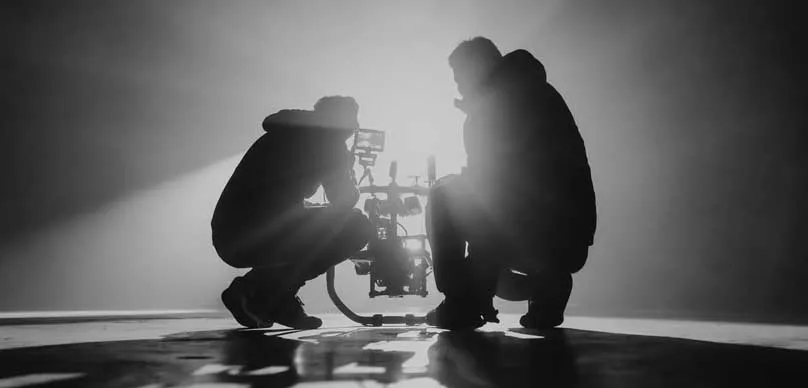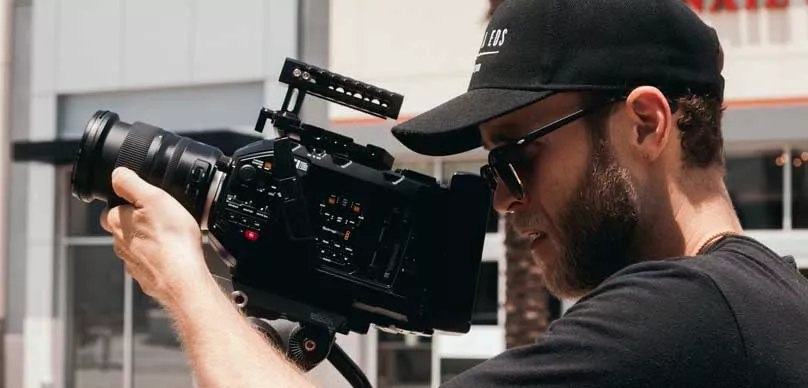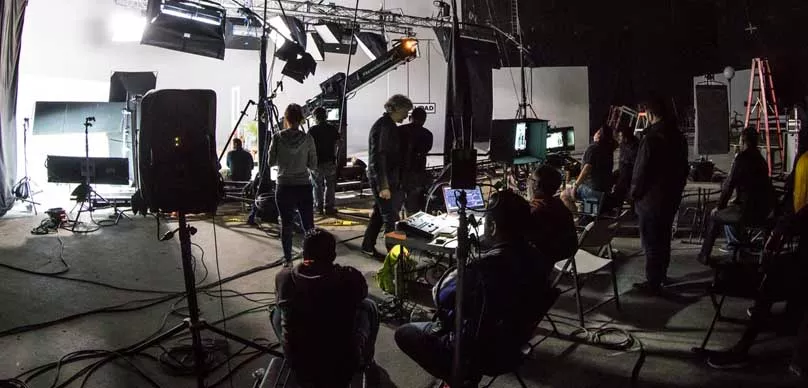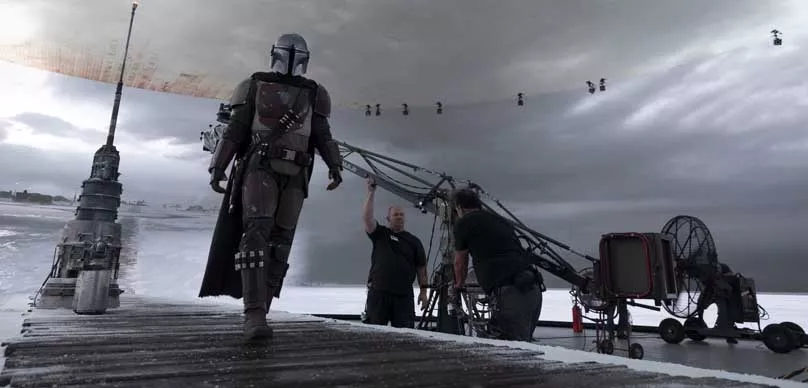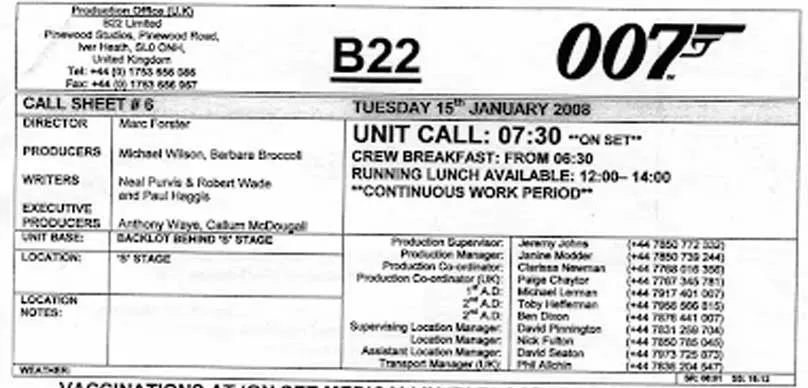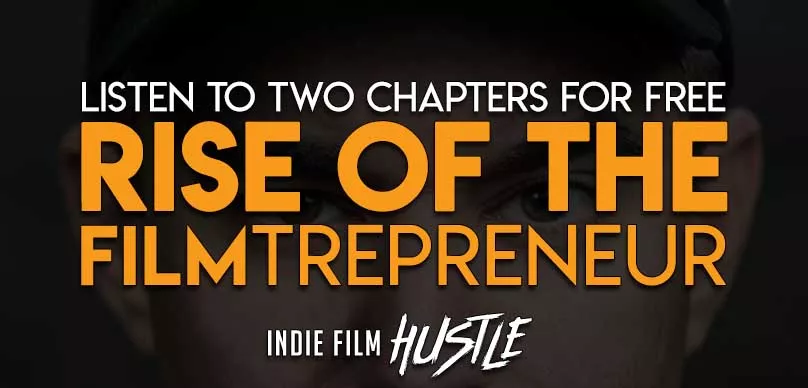I’m back from Sundance! What a ride this year. So much to tell you guys. The first interview in my Sundance Film Festival Interview Series is legendary producer David Permut.
David has produced almost 40 feature films in the course of his career. From Blind Date and Dragnet to Face/Off and the Oscar® Nominated Hacksaw Ridge. His new film, The Polka King starring Jack Black, just got released on Netflix.
Alex Ferrari 2:32
But today's interview we're starting out with legendary for producer David Permut. David has produced almost 40 feature films within the studio system since 1975. Some of his great movies that I loved growing up in the 80s like blind date with Bruce Willis dragnet with Tom Hanks and Dan Ackroyd, the marrying man with Alec Baldwin and Kim Basinger, Captain Ron with Kurt Russell, and then face off with a Nicolas Cage and john travolta and more recently, the Oscar nominated Hacksaw Ridge which took him I think he said about 15 years to get produced. And it was just a thrill to sit down and speak to a producer of his caliber. I dug in and asked every single question I hope you guys want to ask him. So without any further ado, here is my conversation with David Permut. Welcome to the show, guys. I like to introduce you to David Permut. Thank you so much for being on the show. I really appreciate it.
David Permut 3:35
Thank you. Nice to be here.
Alex Ferrari 3:36
You have a long and wonderful career. We could talk for hours. Yes. Many things you've been produced some of my favorite films. Face Off right blind date Greg Edwards, thank you and hacksaw.
David Permut 3:50
Hacksaw Yeah! that was pretty amazing.
Alex Ferrari 3:52
How did you get started producing?
David Permut 3:54
I saw maps to the Stars homes on Sunset Boulevard when I was 16 or 15. I started okay. That was my first job in the business. I published the the maps so I kid on the corner in Holmby hills selling maps the stars homes, you know, more innocent time then it was like CNN today it's a little TMZ thing but it's you're sure anyway so no I did when I moved from New York to LA that was I saw these people looking at home so that was I guess my first job if you want to consider that industry, sir. Sorry maps, but I got very lucky. I videotaped my producing great. I mean, I started making movies when I was a kid. So eight millimeter movies. You know, I always wanted to be in the movie business not sure was directing, you know, writing. And I realized I have no talent as a writer or a director. So I became a producer. No. Which is true. I revere writers and I revere directors. And I love producing you know, producing kind of is the big jigsaw puzzle and putting all the pieces together and you know, the first person on the film and the last one off, and it's all magic. It's amazing. It's just miracles film, get made
Alex Ferrari 4:56
Well in today's world even more so.
David Permut 4:59
Well, I think All the pushing boulders a man's but I think you could say that a lot of businesses you know, but the movie business is a business unto itself. Now what what what is your definition of a producer? definition producer is probably somebody impervious to rejection. But I think we all have to be impervious to rejection in our life. You know, if you believe in something and are passionate about something, you stay with it, but I mean that because, you know, the poker King with jack black, which I premiered here last year at Sundance, you know, I saw this documentary based on his true story and jack committed to it out of the gate like in 48 hours showing him the donkey. He basically calls that I don't you dare go anywhere. I'm born to play on the one system and he produced it with me and it was tailored for him. So the script was written for him that move within three years is like lightning. From the moment that happened Hacksaw Ridge took about 16 years to get made. From the moment I heard about this incredible story about Desmond Doss winning a Congressional Medal of Honor on the front lines never touching a gun. I have a project coming up my next project, which is 21 years of my life picture that's going to start Dev Patel and Ben Stiller based on the birth of a nightclub for women in 1980s, called Chippendales, but it's not magic, Mike, it's it's a unique story. The mob contract, it's it's kind of Boogie Nights meets Goodfellas. Okay, and then amazing, true story, very ensemble cast, which I can tell you about another time. But you know, so it answered your question, the definition of a producer, you know, like everything, every movie starts with an idea. And whether the idea is in the form of a script, a book, a true story, I happen to read the newspaper an idea of mine, I'm watching TV one night surfing, I'm watching an old TV show. And it's a black and white show that jack Webb created. And I'm thinking wow, and then I two channels away as Dan Ackroyd and I will we run a Saturday live and I'm thinking, what would happen if you took an old TV show, and we format it as a comedy because I thought was very funny. It was a dramatic show. But every dramatic moment and dragnet was dumb, but I'm Tom, and I'm laughing. So maybe we could do that as a comedy and becomes one of the biggest grossing films of 1987. You know, that's old history. Now. You know, I, my taste is very eclectic. So I go from dragnet to Hacksaw Ridge to face off to blind date. You know, it's like, my taste is a very broad that way. But it's always about how things affect me emotionally.
Alex Ferrari 7:35
Now, you've worked with some amazing directors in your day. Yeah. JOHN. Woo, yes. Mel Gibson. What do you look for in a director when you want to when you want to hire them and bring them onto a project?
David Permut 7:46
Well, you know, sometimes the first thing is obviously talk about these great talents. Its track record, you know, john Wu, was one of the greatest directors making hard boiled and all the things that he was responsible for making Khan and you know, and that's why I thought of him for Hacksaw Ridge initially. And Mel Gibson, Oscar winning director, you know, he looked at the body of males workup Apocalypto,
Alex Ferrari 8:11
That's that's an underrated movie
David Permut 8:12
It is. And to me, I love Braveheart. But when I think about Apocalypto, this cinematically, it's one of the greatest films ever made. And those of you viewers haven't seen it should see it. Absolutely. Because you can't describe it. You have to experience it. It's an action. Absolutely. But an answer to your question, what do I look for? I see five movies a day, every day, I see 50 movies at Sundance every year. If I don't have a film, I'm just watching movies here. It's about discovery. So it's great to work with john Woo, it's great to work with Mel Gibson. But to me, the greatest rewards in the business is to find the next john Woo, the next Mel Gibson, right. And they always can be found in the hills of Sundance at this festival every year. And there's not a year that goes by that I'm here that I don't cultivate relationships with the next generation of filmmakers and in fact in business with them. And an example of that is, you know, a number of years ago I saw infinitely polar bear with Mark Ruffalo, and I thought is an incredible movie and when it came time to hire writer and hacksaw Ray on Hacksaw Ridge on poka King, it's the air it's the altitude of the teacher when it came time to hire a writer with jack black on polka King Maya forbs directed and while while jetski wrote instantly polar bear, which premiered here which I saw, so it connectedly them so when it came time to hire a writer director team on on the polka King, they were the obvious choice to do that even though their film was uniquely different in tone than hat and then polka King sure, but also the body the word their major writers they've written some other great movies, monsters and aliens and Diary of a Wimpy Kid and and I knew Wiley when he wrote on The Simpsons, and they also made other films together. So the body their work spoke for itself and I went with them and polka King
Alex Ferrari 9:57
Now is it something that I find in Hollywood a lot that they'd like The pigeonhole people like if you just write it like something like the infinite polar bear, like that's all you can do, it takes someone like yourself to believe that the talent is supersedes the genre.
David Permut 10:10
Yeah. Well, I thank you. I think that's true. I think we all somehow have tunnel vision, you know, you see, a great comic is that stand up going to be a great actor, you know, that, you know, everybody you know, would like to do something different than broaden their careers. It doesn't mean it always works that way. But you know, you look at some of the great careers that have started in stand up comedy as example Williams and and translated over to great performances dramatically, as well as an the comedy you know, Ben Stiller's career as dramatic actor. So my mo is pretty much open to that. I mean, one year I was at slam dance, and I saw this movie. And it was made for Nicole called punching the clown. And I just was wildly funny and irreverent is about a comic on the road. And it's probably the only time it happened. And I met the filmmakers I said, Listen, maybe we can do a remake of this movie. You mean you're gonna do a sequel? I said, Yeah, we'll get some money together. And we did and we made a sequel. Probably the only time it happened is sequel to a movie at slam dance called punching Henry was Sarah Silverman, pignataro, Doug Stanhope, Jim Jefferies, Henry Phillips, about a stand up on the road, little kind of micro budget film did really well, but it started in Sun and slam dance when I happen to just stop by there in between a break from the movies at Sundance to see movies at slam, slam dance as well. And then the short films, you know, you look at the directors who started their careers here. It's literally it's the greatest directors of the world of their generation. Absolutely. So for me, where else would I be, but in Sundance watching movies, you know,
Alex Ferrari 11:43
Now, you know, being being in the film business is a grind. And it can be especially for decades, yeah. What keeps you going? What keeps you like, excited?
David Permut 11:51
You know what, what keeps me excited, is this next movie I'm about to see, as soon as I finish our interview, what what gives me in the business because I've been doing it a long time, they referred to me as a veteran, I go by that veteran producer, you know, I love movies. I every night, I'm in a movie theater, I am an old school guy. So I like a big screen and popcorn with a communal experience of watching movies. I know streaming and Netflix, we made the deal with our netflix we can do with them, because more people will see it on Netflix, and I probably would have seen it on traditional release. So we went out Friday with Netflix, I'm poker King. So hopefully all your viewers will tune in and watch that. But what keeps me going is to see great work. So when I see a great film here, and in 10 days, I'll come back and I'll tell you, I saw greatness here. And you have to suffer through some of the film's quite honestly to fight but it's all mining for gold. And when you find that gold nugget. For me, it's inspirational keeps me going in the business. And I get inspired by it. I see Shaun Baker last a couple years ago with what he did with tangerine and now he's in the running for the Oscars with Florida prides when amazing and so many filmmakers Steven capital did the land here. He's now directing creed to the sequel degree to from the land, I mean, and countless others shares. So to me, that's inspiring. And that's really this gives me the shot of adrenaline that keeps me going throughout the next year. And then I come back here for the next shot every year.
Alex Ferrari 13:21
It is a pretty magical experience. Out of all the festivals in the world. This is a very unique experience.
David Permut 13:26
No doubt. I mean I go I'm at Toronto every year when I can and other festivals and I've had films at every festival. Practically every festival seems but this one's special. I first came here in 91 was our first film here many years ago. So I seen it evolve over the years was slacker that year. Well yeah, I think it was time and then sex lies and video as you look at the glorious past or you look at Quintin look at all the great filmmakers but I was here What's that? 91 What mariachi have a right yeah. Robert Right. Yeah. Rodriguez. That was the heyday was like that. It was amazing. And it's equally as amazing. Now, you know, it's different. Yeah. It's just you know, it's a different time different place. But, but there's always great films here. And that is really gives me great inspiration to keep doing what I'm doing
Alex Ferrari 14:12
Now what advice would you give a filmmaker who's just starting out in the business?
David Permut 14:17
Now, the great thing about today is technology. So when Shaun Baker can get an iPhone and go make a movie as brilliantly as tangerine, you know what, if you're a filmmaker, go make a film. Here's my camera. I'll give you my phone. You can make a movie. I mean, that's amazing. In my day, you need money to make a movie. I mean, I was making movies, I millimeter and all that. But I mean, today you can actually make a movie and then you have what do you have today? You get streaming, you've got so many revenues of avenues of getting an audience today. I mean, Justin Bieber became a fucking star. Excuse me. He became a star because of, you know, his his YouTube. Sure. So, you know, it's a very democratic society. That way you shouldn't Anything you want to shoot and put it out in the market will tell you if it's good or not. And the market will tell you in my day, like I remember, these guys sent out a Christmas card. And they sent it to me and I'm looking at this Christmas card and you remember what it was? Absolutely. It's very Christmas. That's it, man. You know, those courageous copies, saying, so in their day, they said that Christmas card, the people in the business, I was the recipient of the Christmas card. I go, my God, what did you think when you got I thought these guys are geniuses, but obviously I was one of had a lot of people got the card. So I wasn't the only one saying I got to be in business with them. Sure, sure what they've done, okay, they've done okay. And they deserve it. They're brilliant. Absolutely brilliant. But, you know, that's the great thing about here. It's, it's next generation next generation filmmakers, actors, directors, you know, writers, production designer, I mean, you know, you just, you look at some of the creative work that's being done at modest micro budgets today. Oh, yeah. And so that's my advice and answer to your question. If you want to be a filmmaker, make a film, you know, and get it to producers and get it to people who, you know, get it to agents and you know, you got to get it in the doors. But if you get into a festival, you get great exposure. And that's, you know, you get it online, you get great exposure everywhere. There's so many different avenues shorts festivals here. I see all I see all the shorts. That's, I mean, the poker king of all because I was at a festival, seeing a documentary called the manor would be poker King. And there you go, let's make the movie. So is that, you know, that's, that's the great thing about the next generation. You have the advance in technology, where you can go out and actually make a movie. And my last question I asked is of all my guests, what is the lesson that took you the longest to learn whether in the film industry or in life? Yeah, well, it's a good question. Walter marish was one of the greatest film producers. You know, from Cool Hand, Luke to Westside story. I mean, endless credits president Academy. And Walter told me was starting out my career. He said, kid, you better have patience. I got no patience. You see the rhythm in which I talk. Now, like today, don't wait till tomorrow, let's hit the ground running. Let's move. I have no patience. I don't understand that at the time. You know, my rhythm is like, I don't want to wait till tomorrow if I can do it today. But with 21 years, to get this next film A was 16 years having spent on Hacksaw Ridge. Three was like lightning with jack black and polka King. And I've got the war stories, or many other projects, face off included, which took a long time to get made every studio turned it down. You've heard these stories before, but it's true. What do you mean, they're switching faces that doesn't make any that could be pretty hokey? Well, not in john woos hands. But in any event, patience, you know, and perseverance, you know, but patience. I mean, when I say impervious to rejection, I think in life, you have to be impervious to rejection. You know, passion is a word people use liberally in Hollywood. But I think if you're really passionate about whether it's telling a story, or making a movie, or whatever it is, you know, that if you believe in something, you really, and you have the conviction to stay behind it. That's what it's all about. That's, that's why these movies get realized here, you know, dreams get made, and dreams get broken in the next 10 days in the city, because people have put up their life on the screen, you know, getting relatives or whatever they get to finance or divest, and getting friends who do things favors, and it's all up on the screen. And in one night, they're either on top of the mountain or they're, they're going home with their, you know, the tail end of their legs. So, you know, there's a lot at stake for so many people come here with their first films and their first efforts. And it's exhilarating, it can also be a devastating experience for many. But so but the most the most importantly is, look, you know what, you fail and fail and fail constantly fail, and you have success and you look in life. That's how it goes. You just stay with it. You don't give up. So perseverance and patience, fail and fail often because I say, Oh, well that's it. But you know, in life, as you said, not just exclusive to the business. You know, it's life. But our business is challenging. I mean, every movie is like pushing boulders up a mountain. It's a miracle films get made. You're dependent on so many other elements to coalesce and come together. Most scripts that get developed very rarely make it to the screen there were all papers sitting on shelves all over Hollywood, millions of dollars in development, and a small fraction of those that actually get realized on the screen. It's It's tough. The business has changed a lot though, but it's changed in a good way. I think, you know, everybody talks about Oh, the business is terrible. Nobody's going to movies anymore. You know why? It's been a better year globally than any previous year. You know, box offices up. You've got you know, the world has become smaller. It's the Asian marketplace. It's it's a world It's a world business today, the North American revenues are eclipsed by the foreign revenues. And you know, it's it's, it's the world's changing the world. I mean, you know, you know, distribution streaming, it's a different time. But you know what it all starts with a great story. And that's the bottom line. And so I'm always like, I always say, I'm like a squirrel looking for a nut. I'm always looking for that great story, whether it's a guy who played poker and wound up in prison, whether it's a guy on the front lines, who decided he wasn't going to touch a gun and stand by his convictions. You know, so you know, those true stories, I think sometimes really resonate with me work.
Alex Ferrari 20:37
I just went on a blind date. David, thank you so much for your good. Thank you guys.
David Permut 20:43
Appreciate it. Thank you.
Alex Ferrari 20:45
It was a pleasure speaking to David. He's a wealth of information. I wish I could have had him longer. But he had to run off to to another Sundance screening to find the next Steven Spielberg, as he says, So David, thank you again, so much for being on the show and dropping some knowledge bombs to the tribe. Now, if you wanted links, or a couple of trailers to things that he's done, please head over to indiefilmhustle.com/216 to check out the show notes. So I am off to work on my secret project, guys, I will talk to you very soon. Keep that also going. Keep that dream alive. And I'll talk to you soon.
Sign up to receive email updates
Enter your name and email address below and I'll send you periodic updates about the podcast.
LINKS
- David Permut – IMDB
SPONSORS
- Bulletproof Script Coverage – Get Your Screenplay Read by Hollywood Professionals
- Audible – Get a Free Filmmaking or Screenwriting Audiobook
- Rev.com – $1.25 Closed Captions for Indie Filmmakers – Rev ($10 Off Your First Order)














